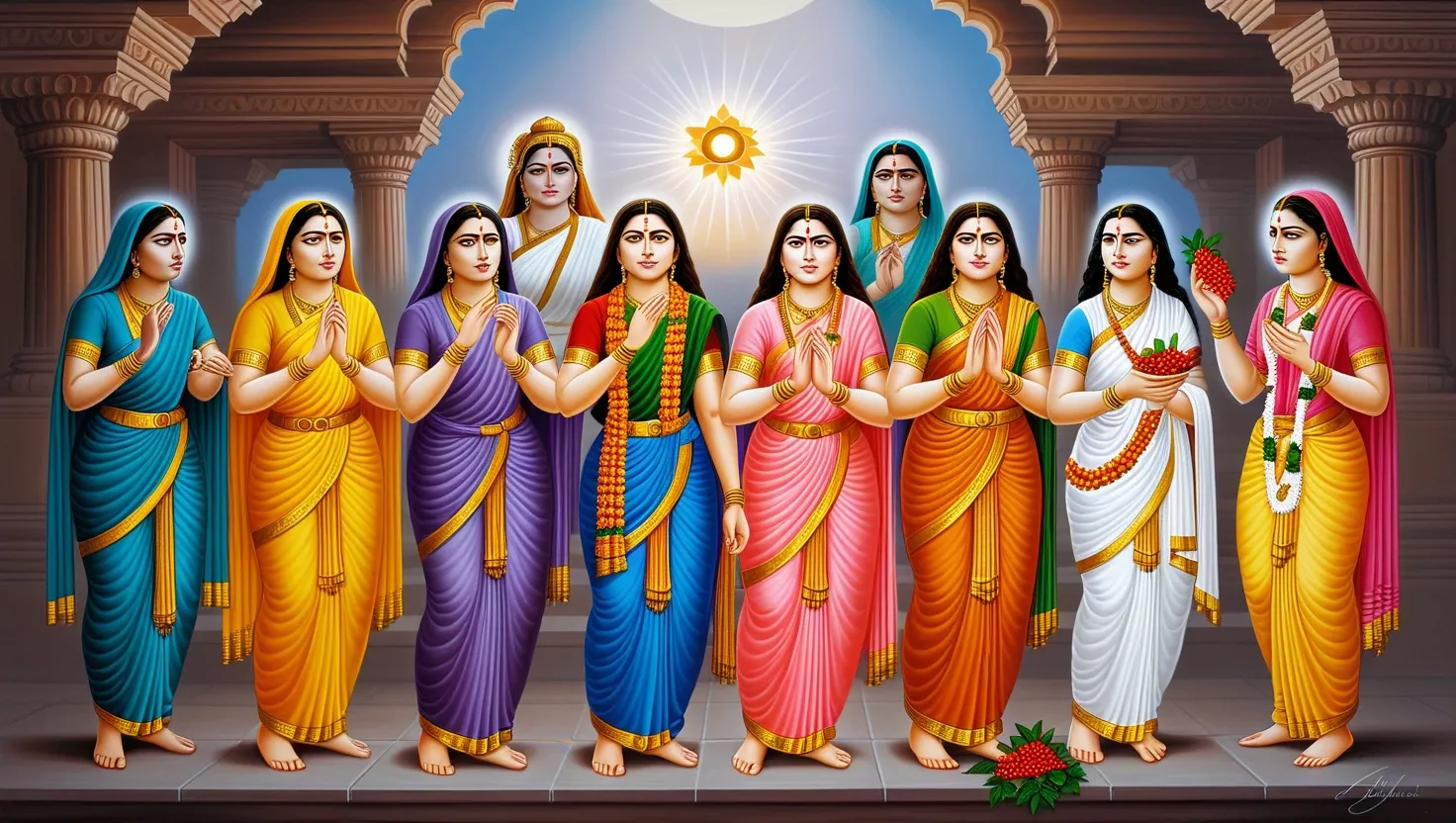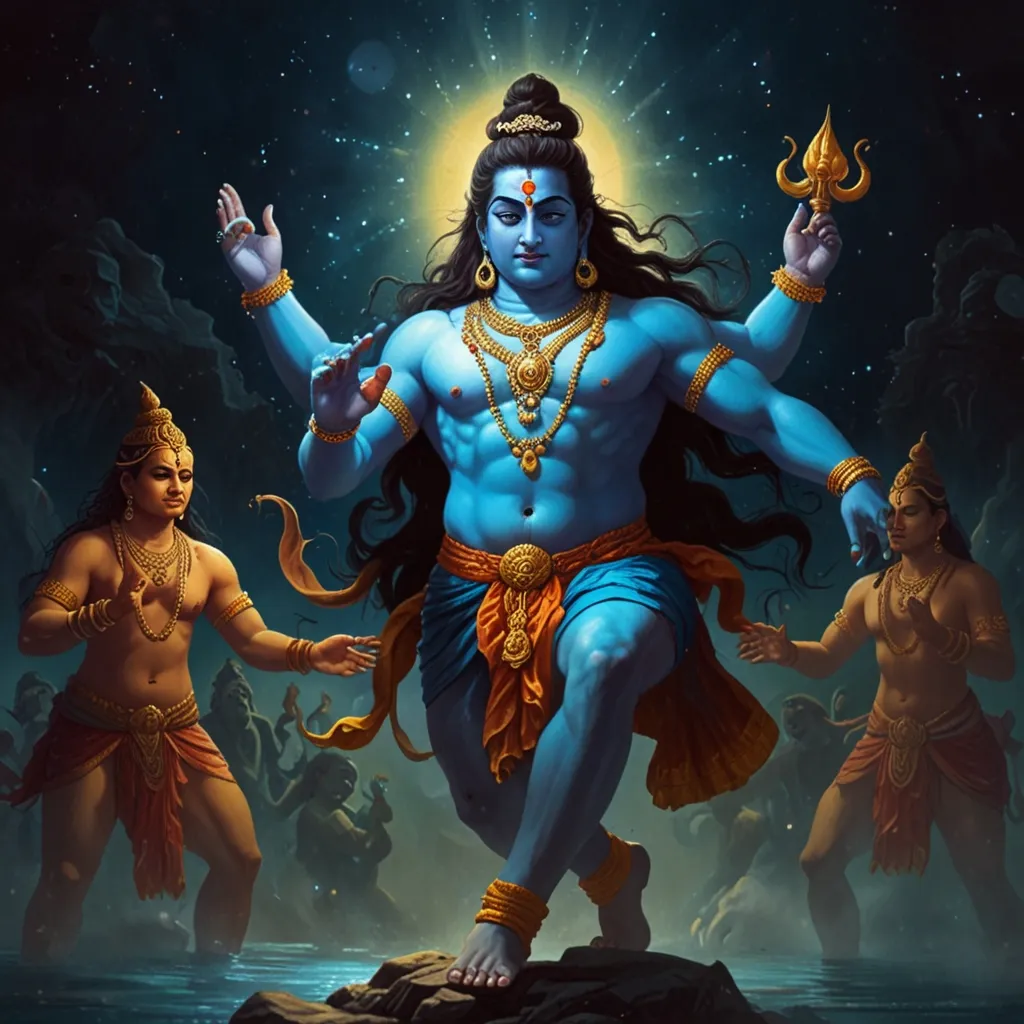The Puranas, ancient Hindu texts brimming with mythology and philosophy, offer a treasure trove of powerful female figures who have left an indelible mark on Indian spiritual thought. These women, often overshadowed by their male counterparts, demonstrate remarkable strength, wisdom, and devotion that continue to inspire generations.
Let’s begin our journey with Savitri, a paragon of determination and intellectual prowess. Her tale is not just one of wifely devotion, but of a woman who outwitted Death itself. When Yama, the god of death, came to claim her husband’s soul, Savitri followed him into the realm of the dead. Through her clever arguments and unwavering resolve, she not only secured her husband’s life but also blessings for her family.
“Death is but the next great adventure,” J.K. Rowling once wrote. But for Savitri, death was a challenge to be overcome through sheer force of will and intellect. Her story raises an intriguing question: How might our approach to life change if we viewed death not as an end, but as a negotiation?
Moving on to Draupadi, we encounter a figure of complexity and contradiction. A princess married to five husbands, she embodies both the victim and the agent of change in a patriarchal society. Her most powerful moment comes in the assembly hall, where she questions the very foundations of dharma (duty) after being humiliated by her husbands’ rivals.
“I raise up my voice, not so that I can shout, but so that those without a voice can be heard,” Malala Yousafzai once said. Draupadi’s voice, raised in righteous anger, echoes through the ages, challenging us to confront injustice wherever we find it. How often do we stay silent in the face of wrongdoing, and what might we achieve if we found the courage to speak out?
Gargi, the philosopher who dared to challenge the great sage Yajnavalkya in metaphysical debate, stands as a testament to female intellectual achievement. In a time when women were often excluded from philosophical discourse, Gargi posed questions so profound that Yajnavalkya warned her head would split if she continued.
“The important thing is not to stop questioning,” Albert Einstein famously said. Gargi’s relentless inquiry into the nature of reality reminds us that the pursuit of knowledge knows no gender. What truths might we uncover if we approached life with Gargi’s insatiable curiosity?
Maitreyi, another philosophical luminary, offers a powerful lesson in prioritizing spiritual growth over material wealth. When her husband Yajnavalkya offered to divide his property between her and his other wife, Maitreyi famously asked, “What should I do with that which does not lead to immortality?” Her rejection of worldly possessions in favor of spiritual knowledge cuts to the heart of what truly matters in life.
“The greatest wealth is to live content with little,” Plato wrote. Maitreyi’s choice challenges our modern obsession with material success. In a world that often equates worth with wealth, how might our lives change if we pursued knowledge and wisdom with the same fervor we chase material gains?
Arundhati, revered as the epitome of wifely virtue, offers a more nuanced portrayal of female power than might first appear. While celebrated for her devotion to her husband Vasishtha, she is depicted as his equal, not his subordinate. Her purity and steadfastness were so renowned that she became immortalized as a star, still pointed out to brides during wedding ceremonies.
“A star does not compete with other stars around it; it just shines,” author Matshona Dhliwayo wrote. Arundhati’s legacy reminds us that true virtue shines from within, regardless of external circumstances. How might our relationships transform if we approached them with Arundhati’s unwavering commitment and self-assurance?
Shabari, a tribal woman of humble origins, offers one of the most touching examples of devotion transcending social boundaries. Her offering of tasted berries to Lord Rama, ensuring only the sweetest ones were given, demonstrates that true devotion knows no caste or class.
“The fruit of love is service, which is compassion in action,” Mother Teresa said. Shabari’s simple act of love challenges our preconceptions about worthiness and purity. In a world often divided by social hierarchies, how can we cultivate Shabari’s spirit of unconditional devotion and service?
Finally, we come to Devahuti, mother of the sage Kapila. Her transformation from queen to spiritual seeker under her son’s guidance illustrates that the path to enlightenment is open to all, regardless of gender or life stage. Devahuti’s journey reminds us that it’s never too late to pursue spiritual growth.
“The only journey is the journey within,” Rainer Maria Rilke wrote. Devahuti’s story invites us to consider our own spiritual evolution. What limiting beliefs about ourselves might we need to shed to embark on our own journey of self-discovery?
These seven women from the Puranas offer far more than just interesting stories from ancient texts. They provide models of empowerment, intellectual rigor, devotion, and spiritual seeking that remain deeply relevant today. Their tales challenge narrow interpretations of female capacity and offer inspiration for anyone seeking to live a life of purpose and meaning.
In a world where gender equality is still an ongoing struggle, these ancient figures remind us that women have long been powerful agents of change and spiritual insight. They encourage us to question societal norms, to pursue knowledge relentlessly, to stand up against injustice, and to seek a deeper understanding of ourselves and the world around us.
As we reflect on these remarkable women, we might ask ourselves: How can we embody their courage, wisdom, and devotion in our own lives? What societal norms might we need to challenge? What deeper truths are we seeking? And how can we, like these women of the Puranas, leave a lasting legacy that inspires generations to come?
The stories of these women, passed down through millennia, continue to resonate because they speak to fundamental human experiences and aspirations. They remind us that regardless of our gender, background, or circumstances, we all have the capacity for extraordinary courage, wisdom, and love. In their struggles and triumphs, we see reflections of our own journeys, and find inspiration to become the heroes of our own stories.






